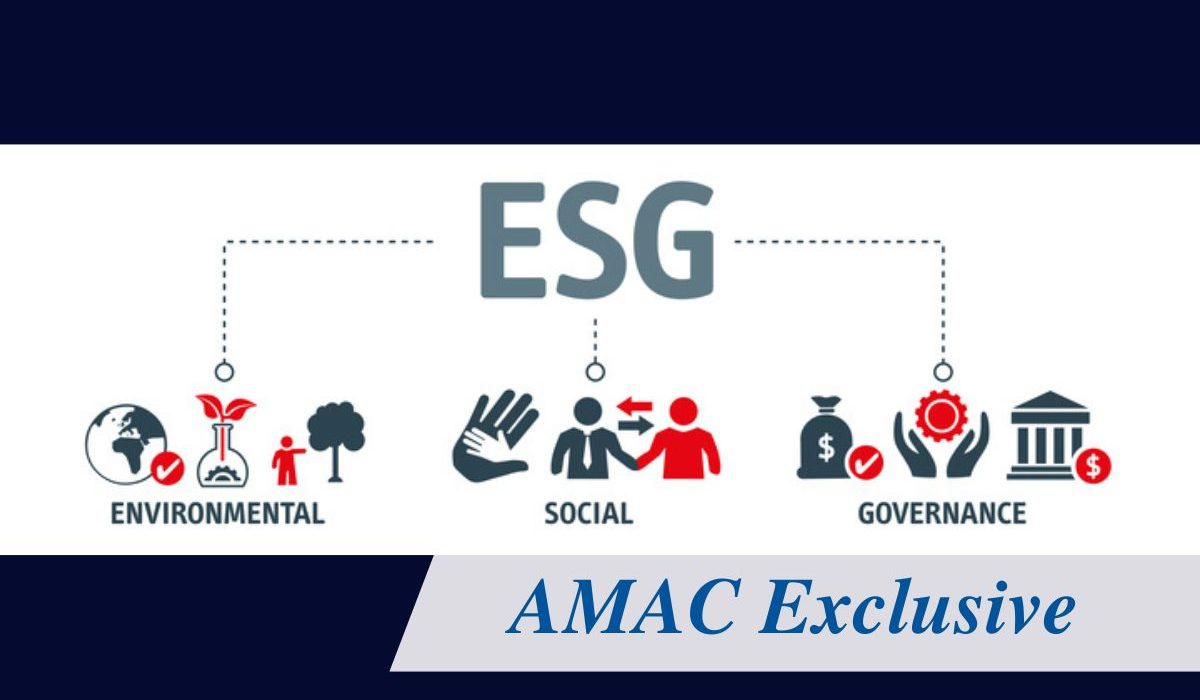The woke investing craze may have reached its zenith.
According to a new report from the Financial Times, investors have withdrawn a net $40 billion from so-called “environmental, social, and governance,” or ESG, funds since the start of 2024. These withdrawals represent “the first year that flows have trended negative” and come amid, according to the Times, “poor performance, scandals, and attacks from U.S. Republicans.”
This trend has been particularly pronounced in the United States. In April alone, American investors pulled $4.4 billion from ESG equity funds. BlackRock, once one of the most prominent champions of ESG, has now halved its ESG assets since 2021. BlackRock CEO Larry Fink has also publicly stated that he will no longer even use the term “ESG” because “it’s been entirely weaponized.” Parnassus Core Equity, “the largest US sustainable fund,” managing $28.4 billion in assets, has “been one of the ten biggest losers in terms of flow for two years straight.”
As the Times also reports, perhaps the primary cause of ESG’s sudden fall from grace is notably diminishing returns. Over the past year, while conventional stock market funds averaged a 21 percent return, ESG funds averaged just 11 percent. As fossil fuel companies have seen sharp upticks in their stock prices, ESG-laden funds have missed out on all those gains.
Jamie Franco, global head of sustainable investments at asset manager TCW, told the Times that many ESG funds launched in 2020-2021, right at the height of the movement’s popularity, “probably went out a little too quickly [and] probably took advantage of some ESG marketing sentiment.” In other words, Franco appears to be suggesting, ESG “investing” is driven more by politics than actual sound economic reasoning.
Although the ESG movement has been around for decades, it initially focused primarily on companies’ supposed environmental impact. Oil and gas companies were the first and most hated enemies of ESG activists, who pushed firms like BlackRock and Vanguard to invest more in wind and solar companies to avoid a supposed climate catastrophe.
Most investors are certified fiduciaries, meaning they are legally obligated to invest their clients’ funds only in companies that they believe will yield the greatest return. ESG investing permits fiduciaries to violate that duty and invest in a company that may theoretically produce a lower return. The justification is that though there is a greater risk, the solar company is more environmentally responsible and, therefore, has a higher ESG score.
The ethos of the movement changed significantly in 2020 amid the riots that gripped American cities and the rise of the “Defund the Police” movement. ESG advocates, already dabbling in left-wing social politics, suddenly became obsessed with pushing “equity” and a “racial reckoning” at investment banks. So-called “diversity, equity, and inclusion,” or DEI, offices began popping up at major companies as they sought to appease the liberal activist class.
Now, however, the backlash to that movement appears to be in full swing, due to both poor financial returns for ESG funds and growing weariness with left-wing identity politics.
Elon Musk, who more than any other single business leader has led the charge against corporate wokeism, blasted ESG in an X post last week responding to dismal ESG ratings for Tesla. In an initial post on the platform, Washington Free Beacon writer Aaron Sibarium reported that “from S&P Global to the London Stock Exchange, tobacco companies are crushing Tesla in the ESG ratings. How could cigarettes, which kill over 8 million a year, be deemed a more ethical investment than electric cars?”
“Why ESG is the Devil,” Musk responded.
As Sibarium suggests, S&P’s report gave tobacco giant Phillip Morris 84 out of 100. Tesla, meanwhile, despite doing more than any other company to speed up the adoption of electric vehicles and generally positive employee reviews, scored a meager 37.
As the New York Post has reported, S&P’s ESG ratings are supposedly determined by analyzing “8,000 companies for 1,000 data points, including climate strategies, labor practices, stakeholder engagement, codes of business conduct and board diversity.” But the fact that Phillip Morris landed a score more than twice that of Tesla’s suggests that political ideology – and specifically an embrace of far-left social politics. It appears that all big tobacco had to do to get back in the good graces of corporate elites is go woke.
As the Financial Times report indicates, investors seem to more or less be coming to the same conclusion as Musk – a development that vindicates what the Times calls “attacks” from Republican elected officials. While liberals criticized the slew of Republican states that have withdrawn their money, primarily state pension funds, from investment banks that embrace ESG, falling returns for ESG funds have proven those red state leaders entirely correct – and benefitted pensioners.
To be sure, ESG investing remains an immensely powerful force in the world of investment banking. Activist-minded employees have now embedded themselves through virtually every major corporation and financial institution.
But if the recent cash outflows are any indication, the ESG movement may soon find itself flat broke.
Andrew Shirley is a veteran speechwriter and AMAC Newsline columnist. His commentary can be found on X at @AA_Shirley.






